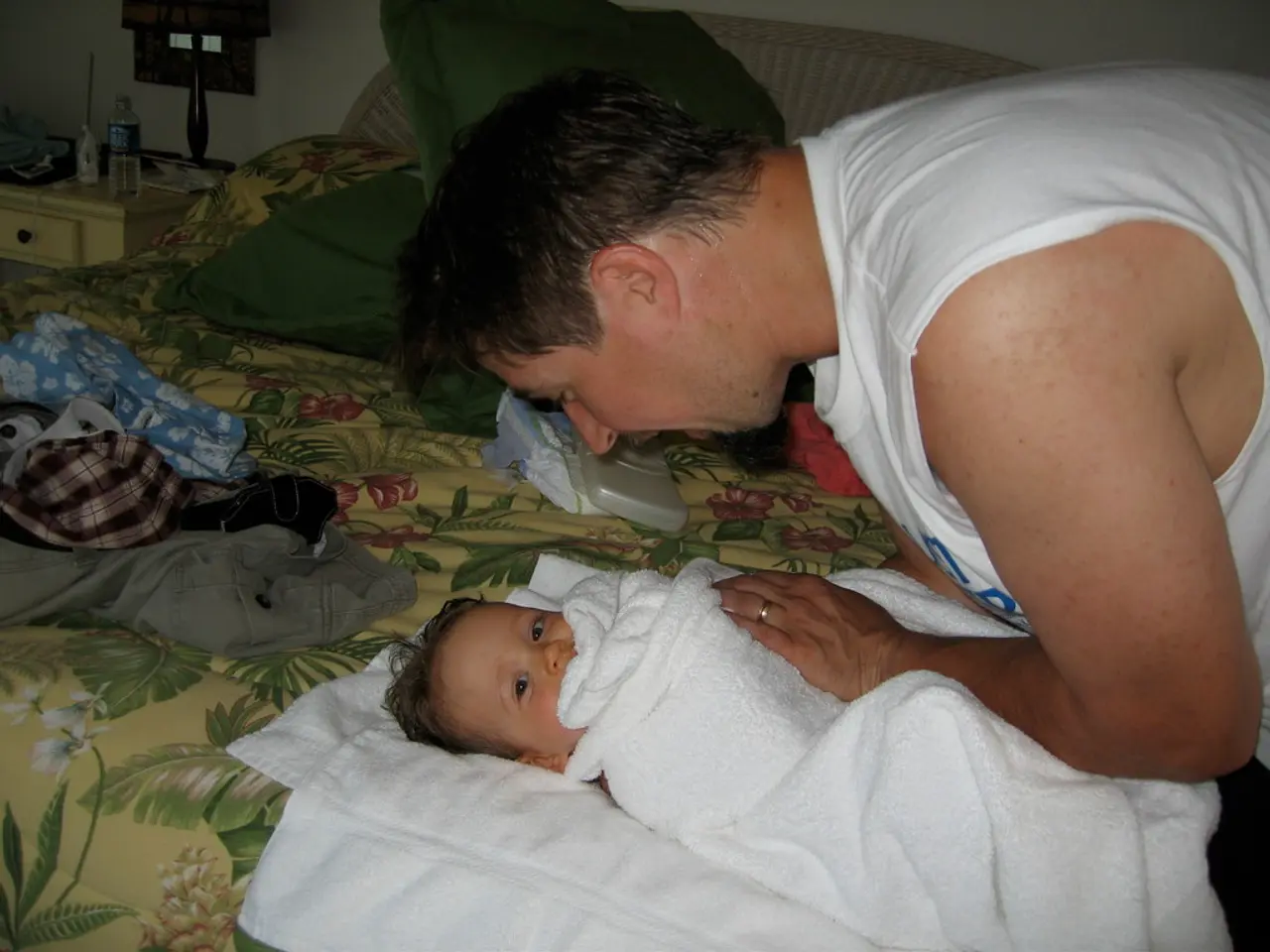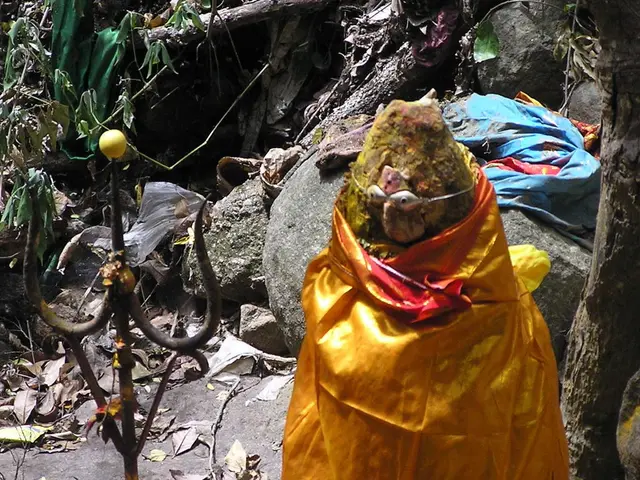Addressing Prevalent Health Concerns in Infants Across Nigeria
Headline: Prioritizing Health: A Guide to Preventing and Managing Common Health Issues in Nigerian Babies
Every baby deserves a healthy start in life, and it begins with the dedication and care of their parents. In Nigeria, common health issues such as diarrhea and malnutrition can pose significant threats to a baby's well-being. This article aims to provide a comprehensive guide on preventing and managing these issues to create a nurturing environment for Nigerian babies to grow and thrive.
Diarrhea in Babies
Consult a healthcare professional for guidance on treating and managing diarrhea in babies. Proper treatment and management are crucial to prevent complications from diarrhea, which can quickly lead to dehydration, a dangerous condition in infants. Preventing diarrhea is better than treating it.
Promote exclusive breastfeeding for the first six months to prevent diarrhea in babies. Continue breastfeeding or offer oral rehydration solution (ORS) frequently when treating diarrhea in babies. Ensure good hygiene practices, including regular handwashing, when caring for a baby with diarrhea.
Malnutrition in Nigerian Babies
Malnutrition is a concern for babies with diarrhea as it can affect nutrient absorption. The prevention and treatment of malnutrition in Nigerian babies involve improving access to nutritious food, expanding healthcare capacity, providing therapeutic foods, and implementing early detection and monitoring programs.
Ensuring access to food and nutritional supplements, treating with ready-to-use therapeutic food (RUTF), increasing healthcare capacity, early detection and family involvement, prenatal and postnatal care with nutritional supplementation, improving access to safe water, sanitation, and hygiene (WASH), controlling infectious diseases, addressing systemic issues, and improving access to safe water sources are key strategies in the fight against malnutrition.
Malaria in Babies
Babies with malaria may require supportive care, such as maintaining hydration, providing a balanced diet, and managing fever and pain. A clean and mosquito-free environment helps prevent malaria in babies. Sleeping under insecticide-treated bed nets reduces the risk of mosquito bites and malaria transmission. Mosquito repellents can be used to prevent malaria in babies.
Antimalarial medications are available in various forms, including tablets, syrups, and suppositories. Preventive medications, such as antimalarial drugs, can be administered to babies to prevent malaria. Early diagnosis of malaria in babies is crucial to prevent complications and reduce disease severity.
Preventing Health Issues
By being proactive in detecting, preventing, and managing common health issues, parents can create a nurturing environment for their babies to grow and thrive. Practice proper handwashing before and after handling the baby, preparing food, and changing diapers to prevent diarrhea in babies. Encourage proper food handling, storage, and cooking techniques to prevent diarrhea in babies.
Avoid giving anti-diarrheal medications unless prescribed by a doctor. Provide a bland diet with easily digestible foods, such as bananas, rice, and toast, when managing diarrhea in babies. Ensure safe and clean water sources for the preparation of formula or solid foods to prevent diarrhea in babies. Monitor the baby's symptoms and seek medical help if they worsen or persist.
Seeking medical advice and support is crucial for the well-being of Nigerian babies. It is vital to follow the prescribed dosage and complete the full course of treatment to ensure proper recovery. Parents should consult healthcare professionals when they notice any signs of illness or developmental concerns in their babies.
In conclusion, a comprehensive approach combining food security, therapeutic treatment, early detection, healthcare support, and systemic public health improvements forms the foundation of malnutrition prevention and treatment strategies for Nigerian babies, especially in crisis-affected northern regions. By prioritizing the health and well-being of Nigerian babies, we can ensure a brighter future for the next generation.
[1] UNICEF. (2020). Nutrition. [online] Available at: https://www.unicef.org/nigeria/nutrition [Accessed 15 Mar. 2023]. [2] World Health Organization. (2020). Malnutrition. [online] Available at: https://www.who.int/nutrition/topics/malnutrition/en/ [Accessed 15 Mar. 2023]. [3] ALIMA. (2020). ALIMA Nigeria. [online] Available at: https://alima-malaria.org/en/where-we-work/nigeria/ [Accessed 15 Mar. 2023]. [4] Save the Children. (2020). Nigeria: Malnutrition. [online] Available at: https://www.savethechildren.net/where-we-work/africa/nigeria/our-work/malnutrition [Accessed 15 Mar. 2023]. [5] World Food Programme. (2020). Nigeria. [online] Available at: https://www.wfp.org/countries/nigeria [Accessed 15 Mar. 2023].
Read also:
- Transmissible Infections and Parasites Found in Untreated Berries
- Sneezing emits a complex, super-infectious waterfall of liquid, rather than a simple spray!
- Weekly Updates from the German Parliament (Bundestag)
- CRISPR technology's potential in restoring vision through gene editing, backed by academic findings







